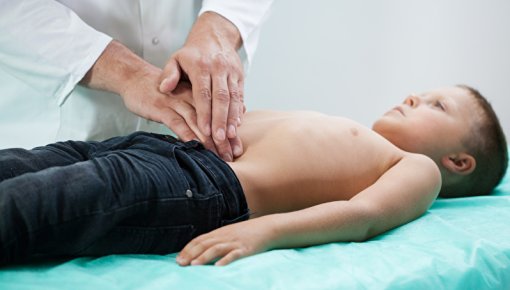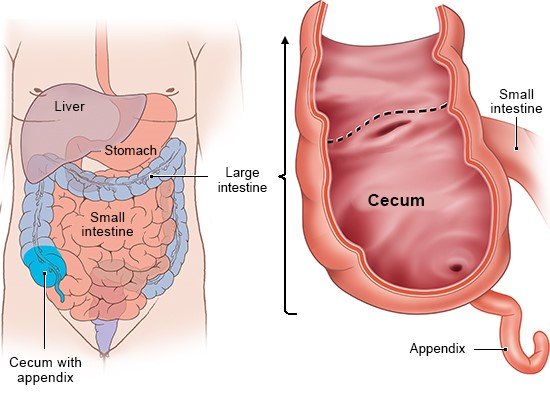Andric M, Kalff JC, Schwenk W et al. Empfehlungen zur Therapie der akuten Appendizitis bei Erwachsenen (S1-Leitlinie). AWMF-Registernr.: 088-011. 2021.
D'Souza N, Hicks G, Beable R et al. Magnetic resonance imaging (MRI) for diagnosis of acute appendicitis. Cochrane Database Syst Rev 2021; (12): CD012028.
Di Saverio S, Podda M, De Simone B et al. Diagnosis and treatment of acute appendicitis: 2020 update of the WSES Jerusalem guidelines. World J Emerg Surg 2020; 15(1): 27.
Fawkner-Corbett D, Hayward G, Alkhmees M et al. Diagnostic accuracy of blood tests of inflammation in paediatric appendicitis: a systematic review and meta-analysis. BMJ open 2022; 12(11): e056854.
Gorter RR, Eker HH, Gorter-Stam MA et al. Diagnosis and management of acute appendicitis. EAES consensus development conference 2015. Surg Endosc 2016; 30(11): 4668-4690.
Herrod PJ, Kwok AT, Lobo DN. Randomized clinical trials comparing antibiotic therapy with appendicectomy for uncomplicated acute appendicitis: meta-analysis. BJS Open 2022; 6(4): zrac100.
Jaschinski T, Mosch CG, Eikermann M et al. Laparoscopic versus open surgery for suspected appendicitis. Cochrane Database Syst Rev 2018; (11): CD001546.
Kothadia JP, Katz S, Ginzburg L. Chronic appendicitis: uncommon cause of chronic abdominal pain. Therap Adv Gastroenterol 2015; 8(3): 160-162.
Low ZX, Bonney GK, So JB et al. Laparoscopic versus open appendectomy in pediatric patients with complicated appendicitis: a meta-analysis. Surg Endosc 2019; 33(12): 4066-4077.
Müller M. Chirurgie - Für Studium und Praxis 2020/21. Breisach: Medizinische Verlags- u. Informationsdienste.
Poprom N, Numthavaj P, Wilasrusmee C et al. The efficacy of antibiotic treatment versus surgical treatment of uncomplicated acute appendicitis: Systematic review and network meta-analysis of randomized controlled trial. Am J Surg 2019; 218(1): 192-200.
Poprom N, Wilasrusmee C, Attia J et al. Comparison of postoperative complications between open and laparoscopic appendectomy: An umbrella review of systematic reviews and meta-analyses. J Trauma Acute Care Surg 2020; 89(4): 813-820.
Prechal D, Damirov F, Grilli M et al. Antibiotic therapy for acute uncomplicated appendicitis: a systematic review and meta-analysis. Int J Colorectal Dis 2019; 34(6): 963-971.
Talan DA, Di Saverio S. Treatment of Acute Uncomplicated Appendicitis. N Engl J Med 2021; 385(12): 1116-1123.
Téoule P, Laffolie J, Rolle U et al. Acute Appendicitis in Childhood and Adulthood. Dtsch Arztebl Int 2020; 117(45): 764-774.
Van Dijk ST, van Dijk AH, Dijkgraaf MG et al. Meta-analysis of in-hospital delay before surgery as a risk factor for complications in patients with acute appendicitis. Br J Surg 2018; 105(8): 933-945.
Yang Z, Sun F, Ai S et al. Meta-analysis of studies comparing conservative treatment with antibiotics and appendectomy for acute appendicitis in the adult. BMC Surg 2019; 19(1): 110.
IQWiG health information is written with the aim of helping people understand the advantages and disadvantages of the main treatment options and health care services.
Because IQWiG is a German institute, some of the information provided here is specific to the German health care system. The suitability of any of the described options in an individual case can be determined by talking to a doctor. informedhealth.org can provide support for talks with doctors and other medical professionals, but cannot replace them. We do not offer individual consultations.
Our information is based on the results of good-quality studies. It is written by a team of health care professionals, scientists and editors, and reviewed by external experts. You can find a detailed description of how our health information is produced and updated in our methods.


